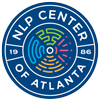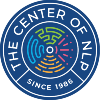CONTACT US info@centerofnlp.com

The Power of NLP for Health and Well-Being: Mind Over Matter
Introduction
In today's fast-paced world, where stress, anxiety, and self-doubt have become prevalent, individuals constantly seek effective ways to improve their health and well-being. Neuro-Linguistic Programming (NLP) offers powerful techniques and strategies that can positively impact various aspects of our lives. This article explores the fascinating realm of NLP and how it can be harnessed to enhance health, well-being, and personal growth.
What is Neuro-Linguistic Programming (NLP)?
Neuro-Linguistic Programming, commonly known as NLP, is a psychological approach that examines the connections between our thoughts, language, and behaviors. It explores the relationship between the neurological processes (neuro), language (linguistic), and patterns of behavior (programming) that we have learned through our experiences. NLP provides insights and tools to understand how our mind works and enables us to change our thoughts and behaviors positively.
Understanding the Power of NLP
NLP operates on the principle that our subjective experiences shape our reality. Understanding and altering our internal representations of the world can transform our perception and response to various situations. NLP empowers individuals to recognize and change limiting beliefs, habits, and patterns that hinder personal growth. It provides techniques to enhance self-awareness, communication skills, motivation, and well-being.
Applying NLP Techniques for Health and Well-being
NLP techniques can be applied in various areas to improve health and well-being. Let's explore some critical applications:
1. Enhancing Self-awareness through NLP
NLP offers tools to develop self-awareness by understanding our thinking patterns, emotions, and behaviors. Techniques such as "anchoring" help individuals manage their emotional states and promote a positive mindset. By becoming more self-aware, we can make conscious choices that align with our goals and values.
2. Overcoming Limiting Beliefs with NLP
Limiting beliefs often hold us back from reaching our full potential. NLP helps identify and transform these beliefs into empowering ones. Techniques like "reframing" enable individuals to view challenges from different perspectives, opening up new possibilities and fostering personal growth.
3. NLP Techniques for Stress Management
Stress is a common issue that affects our well-being. NLP provides effective strategies for managing stress and building resilience. Techniques such as "anchoring" and "timeline therapy" can help individuals release negative emotions, reduce anxiety, and achieve a state of calmness.
4. Improving Communication Skills with NLP
Effective communication plays a vital role in our personal and professional lives. NLP techniques enhance communication skills by improving rapport, active listening, and non-verbal communication. By mastering these skills, individuals can build stronger relationships and achieve better outcomes in their interactions.
5. NLP and Goal Setting
Setting clear and achievable goals is crucial for personal growth. NLP techniques assist individuals in setting goals that are aligned with their values and creating effective strategies to achieve them. Utilizing techniques like "well-formed outcomes" and "chunking," individuals can enhance their motivation, focus, and success in reaching their desired outcomes.
Join Our Vibrant NLP Community for Building Rapport—Where Connection and Growth Flourish!6. Using NLP to Boost Confidence and Motivation
NLP offers powerful tools to boost self-confidence and motivation. Techniques like "anchoring," "swish pattern," and "parts integration" help individuals overcome self-doubt, build self-esteem, and unlock their full potential. By harnessing the power of NLP, individuals can step out of their comfort zones and achieve remarkable results.
7. NLP for Overcoming Phobias and Fears
Phobias and fears can significantly impact our daily lives. NLP provides effective techniques such as "fast phobia cure" and "visual/kinesthetic dissociation" to overcome these challenges. Through NLP interventions, individuals can rewire their responses to triggers and regain control over their lives.
8. Enhancing Relationships through NLP
NLP techniques can strengthen relationships by improving rapport, empathy, and understanding. Techniques like "mirroring and matching" and "representational systems" help individuals connect at a deeper level and bridge communication gaps. NLP fosters effective relationships, both personal and professional.
9. The Impact of NLP on Mental Health
NLP has shown promising results in supporting mental health and well-being. By addressing the root causes of negative emotions and thought patterns, NLP techniques can alleviate symptoms of anxiety, depression, and trauma. When integrated with therapeutic approaches, NLP-based interventions can contribute to holistic mental wellness.
10. NLP Techniques for Personal Growth and Transformation
NLP is a powerful tool for personal growth and transformation. It enables individuals to identify and break free from self-imposed limitations, unlock their potential, and create meaningful life changes. NLP techniques facilitate self-discovery, empowerment, and continuous personal development.
Conclusion
Neuro-Linguistic Programming (NLP) offers a vast array of techniques and strategies to enhance health, well-being, and personal growth. By harnessing the power of NLP, individuals can transform their thoughts, behaviors, and beliefs, leading to a more fulfilling and balanced life. Whether it's managing stress, improving communication skills, or overcoming fears, NLP provides a comprehensive approach to nurturing mental, emotional, and physical well-being.
Learn more here: Centerofnlp.com
For inquiries and further information, kindly reach out via email to info@centerofnlp.com
Check Out For more:
Boosting Confidence and Overcoming Limitations with NLP Techniques
The Art of Effective Communication: NLP Strategies for Better Interactions
NLP Techniques for Overcoming Procrastination and Boosting Productivity
Mastering Influence: Using NLP to Persuade and Inspire Others
FAQs (Frequently Asked Questions)
1. Is NLP suitable for everyone?
Yes, NLP techniques can benefit individuals from various backgrounds and walks of life. It offers valuable insights and tools that can be applied to enhance personal and professional aspects of life.
2. Can NLP replace traditional therapy?
NLP is not a replacement for traditional therapy but can complement it. NLP techniques can be integrated with therapeutic approaches to support individuals in achieving better mental health and personal growth.
3. How long does it take to see results with NLP?
The timeline for experiencing results with NLP varies from person to person. Some individuals may notice positive changes quickly, while others may require more time and practice to integrate the techniques effectively.
4. Can NLP be learned without formal training?
While basic NLP techniques can be learned through self-study, formal training and guidance from certified NLP practitioners or trainers can provide a deeper understanding and ensure the proper application of the techniques.
5. Where can I learn more about NLP?
There are various resources available, including books, online courses, and workshops, that can help you learn more about NLP. It's recommended to seek information from reputable sources and learn from qualified NLP practitioners.
Copyright 1989 - 2024 | The Center of NLP © | All Rights Reserved

